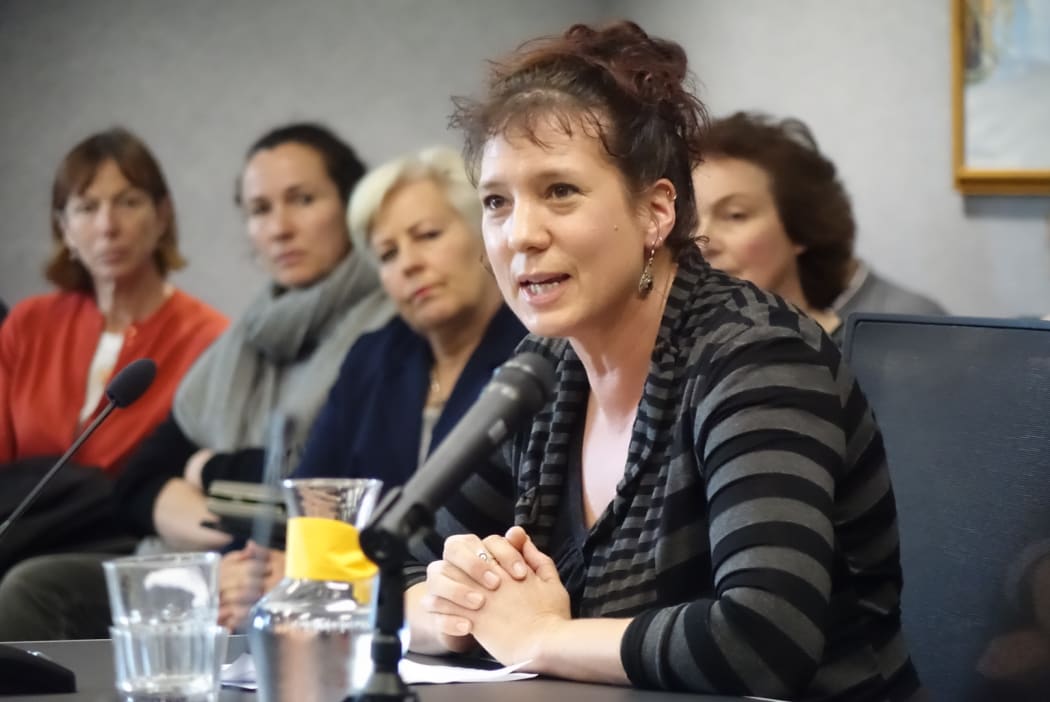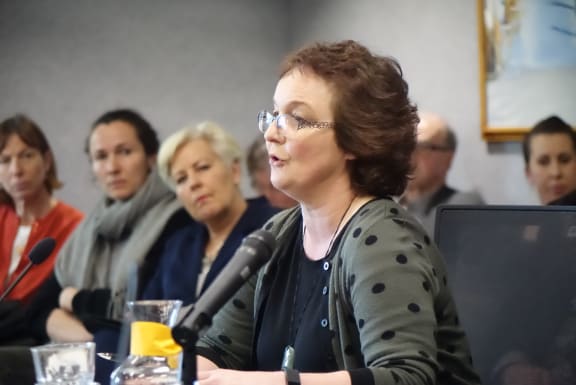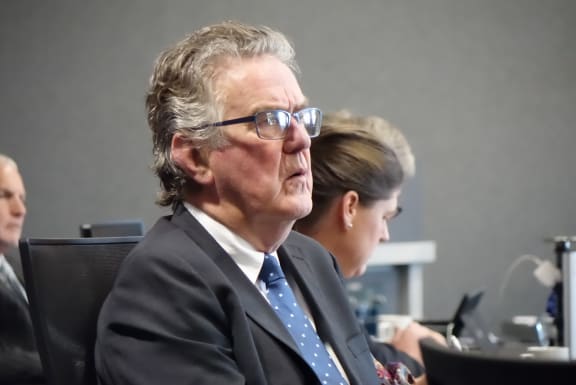Otago regional council has agreed to go against its own policy and step in to keep four Dunedin school bus routes on the road.

School bus Photo: 123rf.com
The public gallery at a council meeting was filled this morning by two dozen parents and school principals there to urge councillors to intervene.
Operator Go Bus's decision a fortnight ago to cut the four school services without consultation has elicited angry reactions from parents.
The services had been fully commercial, without oversight from the council which runs Dunedin's public transport system.
'A real threat to our community'

Kjesten Nilsson's eldest son has autism and says the alternative bus route would not be safe for any of her three children. Photo: RNZ / Ian Telfer
Half a dozen community and school leaders and parents told councillors they needed to intervene.
One Otago Peninsula parent, Kjesten Nilsson, told councillors parents were desperate for a quick solution.
Her eldest son has autism and has been using the school buses, and has two younger children who are likely to want to use it in future, she said.
"The alternative normal Portobello bus route to town is not a safe option," Ms Nilsson said.
"At 11 and 12 years old they are too young to be unsupervised for such a long distance into town," she said.
The route would force them to cross multiple busy roads with uncontrolled crossings and walk several kilometres through Dunedin back streets, she said.
"And the bus shelters are unsheltered, so they will arrive at school wet and cold on many days," she warned.
Families like hers would have to consider whether they could still live on the Peninsula, Ms Nilsson said.
Otago Peninsula community board chair Paul Pope said the bus cuts were a real threat to his community and would create significant hardship for people on lower incomes.
Principals urged the council to help keep the buses in place for the fourth school term, while they work out what to do next year.

Judith Forbes. Photo: RNZ / Ian Telfer
In South Dunedin, Bayfield High School principal Judith Forbes said students had few safe options for getting to school.
One of her students tried walking from the Cove on the Peninsula one day on the shared bike and walking path, but arrived at school bleeding and injured, having been hit by a cyclist at high speed.
The amended public bus service would have pupils arriving at school either well before 8am - more than half an hour early - or 25 minutes late for school.
Neither of these options made sense, Ms Forbes said.
If they arrived half an hour late each day, they would miss 95 hours of teaching time a year, or almost four weeks of lessons, she said.
The loss of the buses would mean school drop outs because some families had no alternative transport.
Ms Forbes appealed to Go Bus's main owner, Ngāi Tahu, but it appeared unwilling to change the decision, so she had to appeal to the regional council to do something, she said.
Short term help
Councillors said they were uncomfortable getting involved in school bus provision again, but they saw many parents had been put in an unfair position and needed a quick solution for next term.
"We have to get on with this," councillor Bryan Scott said.
"As a council we have to show ourselves as being able to respond, having the will to respond," he said.
But some councillors disagreed, saying the council's policy since last year was to phase out all subsidies for school buses, to make maximum use of the regular bus system.

Michael Deaker Photo: RNZ / Ian Telfer
Councillor Michael Deaker warned it was a bad precedent, which other operators might exploit.
"I don't know why we are making a big deal out of this," Mr Deaker said.
"We can help with a replacement contract maybe, but why should we go further than that?"
After a debate, councillors found a compromise: they would broker a solution between bus companies, schools and parents, and put in financial support if necessary to save the services.
But that option is only available for one term.
Councillors said the community would have to step up and solve the problem for itself after that.




